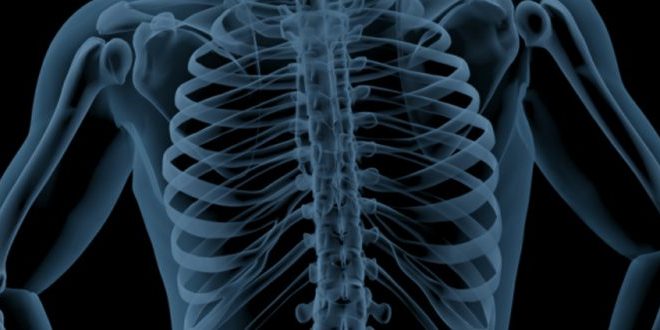The 5 Worst Habits Destroying Your Spine (And How to Fix Them!)
Many of us unknowingly develop habits that harm our spine, from slouching at desks to poor lifting techniques. These small, repetitive actions accumulate, leading to chronic pain and discomfort. At Mountain Movement Chiropractic & Natural Health, we help you recognize and address these damaging habits before they result in serious injury. By focusing on better posture, alignment, and movement, you can protect your spine and prevent future pain.

Your back didn’t “go out” from one bad move—it was dozens of small habits stacked over time.
Sound familiar? One minute you’re reaching down to tie your shoe or pick up your kid, and the next—bam—your back locks up, your neck seizes, or a sharp pain shoots down your leg. The reality? That sudden pain didn’t suddenly happen. It’s the result of repetitive, subtle wear and tear from how you sit, move, sleep, and even carry your bag.
Most people blame back pain on age, old injuries, or bad luck. But in truth, most spinal problems come from everyday habits that seem harmless—until they aren’t.
At Mountain Movement Chiropractic & Natural Health, we hear it all the time:
- “I didn’t lift anything heavy, but now my lower back is killing me.”
- “I wake up stiff every morning and just assume it’s because I’m getting older.”
- “My posture’s not great, but I didn’t think it was a big deal.”
The truth is, your spine is talking. The tightness, stiffness, and pain you feel are messages—not malfunctions. And the good news? You can do something about it.
#1 Slouching at Your Desk or on the Couch
You might not feel it in the moment—but hour after hour of slouching adds up fast.
Whether you’re working at a desk, scrolling on the couch, or binge-watching in bed, prolonged sitting in a collapsed posture compresses your spine, overstretches fascia, and weakens the core muscles that are meant to support your body. Over time, this creates tight hips, stiff shoulders, and that familiar dull ache in the lower back or neck.
One of the biggest culprits we see? Forward head posture—that forward-tilted position where your ears are in front of your shoulders, often caused by looking down at screens. It places excessive strain on the neck and upper back, compresses the cervical spine, and leads to:
- Chronic tension headaches
- Shoulder blade discomfort
- Reduced breathing capacity
- Poor balance and nervous system feedback
Quick Fix: Break the Cycle
The good news? You don’t need to quit your job or ditch your phone to start reversing the damage. Here are some of the best ways to fix posture from Dr. Day’s playbook:
- Stand up and move every 30–60 minutes — even a 2-minute stretch break resets your posture and circulation.
- Use a lumbar support pillow to keep your low back upright and reduce spinal fatigue.
- Raise your screens to eye level so your head stays stacked over your shoulders, not falling forward.
At Mountain Movement, we also teach postural retraining and fascia activation techniques that restore proper alignment and take pressure off the spine—because sitting doesn't have to equal suffering.
#2 Sleeping in Positions That Twist or Flatten Your Spine
Sleep is supposed to be the time your body recovers. But for many people, it’s when the damage is actually being done.
One of the most overlooked bad habits that cause back pain is poor sleep posture—especially stomach sleeping or using a flat, unsupportive pillow. These positions force your spine into unnatural alignment for 6–8 hours at a time, leading to:
- Tightness in the lower back
- Neck pain and stiffness upon waking
- Shoulder or hip misalignment
- Even numbness or tingling in the arms or legs
When your spine is twisted, compressed, or unsupported all night, the muscles and fascia that are supposed to relax instead remain tense and protective—waking you up more tired and tight than when you went to bed.
Fix It: Sleep Smarter, Not Stiffer
You don’t need to replace your whole mattress. A few small changes can transform how your body rests and recovers:
- Sleep on your back with a pillow under your knees to reduce pressure on your lumbar spine.
- Side sleeper? Place a pillow between your knees to keep hips and spine aligned.
- Choose a supportive pillow that keeps your neck level—not tilted up or down.
- Before bed, do 3–5 minutes of gentle fascia release (foam rolling or deep breathing stretches) to help unwind tension and prep your spine for sleep.
At Mountain Movement Chiropractic, we help patients retrain their bodies to rest in positions that promote recovery—not misalignment. Because real healing starts the moment your head hits the pillow.
#3 Lifting With Your Back, Not Your Legs
If you’ve ever bent over to pick up a laundry basket, toddler, or mulch bag—and felt that sharp twinge in your back—you’re not alone. One of the most common movement mistakes we see? Lifting with your spine instead of your hips.
When you bend and twist without engaging your core or maintaining a neutral spine, you place intense pressure on the spinal discs—especially in the lower back. This creates micro-tears in supportive tissues, builds fascia tension, and increases the risk of disc bulges or herniation over time.
This habit shows up everywhere:
- Parents constantly lifting kids in awkward positions
- Weekend warriors tackling yard work without warming up
- Gym-goers doing deadlifts or squats with poor mechanics
The Fix: Train Smarter Movement Patterns
Rewiring how you lift takes practice, but the payoff is a stronger, safer spine. Here’s how to get started:
- Master the hip hinge: Instead of rounding your back, push your hips back and keep your spine long when reaching or lifting.
- Keep a neutral spine: Think "proud chest" and "tall posture" when moving under load.
- Engage your glutes and core before the lift—this gives your spine the stability it needs to move safely.
At Mountain Movement, we don’t just adjust the spine—we retrain the way you move. Using muscle activation, fascia release, and movement instruction, we help patients lift, bend, and carry with confidence—whether you're loading a barbell or your kid’s backpack.
#4 Carrying Bags, Kids, or Weight on One Side Only
You grab your bag. Hoist your toddler onto your hip. Carry your groceries in one arm. We all do it—but when you consistently load one side of your body, you're setting yourself up for a major imbalance.
Habitually carrying weight on one side pulls your spine out of alignment, leading to:
- Asymmetrical muscle development
- Compensatory scoliosis-like patterns
- Chronic SI joint pain or pelvic tilt
- Uneven wear on your lower back and hips
The Fix: Even Out the Load
Balance isn’t just about standing straight—it’s about how you move through daily life. Try these strategies:
- Switch sides regularly when carrying kids, purses, or bags
- Use backpacks or crossbody bags to distribute weight evenly
- Strengthen your non-dominant side with intentional movement and resistance work
At Mountain Movement Chiropractic & Natural Health, we use The Day Method to assess and correct these subtle but damaging asymmetries. Through movement screens, functional testing, and fascia mapping, we identify side-dominant compensation patterns and build a custom plan to retrain and realign your system.
#5 Ignoring "Small" Pain or Tightness
It's just a little shoulder tension. A stiff lower back in the morning. Some occasional hip tightness after sitting too long.
These might seem like minor annoyances, but in reality, they’re early messages from your spine—your body’s way of saying: “Something’s off.”
One of the most damaging habits we see? Ignoring these signals until they turn into full-blown dysfunction. When subtle restrictions are left unaddressed, the body begins to compensate:
- Overusing surrounding muscles
- Shifting weight unevenly
- Tightening fascia in the wrong places
- Disrupting natural movement patterns
The Fix: Listen Early, Act Proactively
Pain is not the problem—it’s the alarm. And when you respond early, your body is incredibly capable of healing itself.
- Get assessed before the pain becomes persistent—especially if you feel recurring tightness or imbalance
- Address fascia restrictions that limit joint glide and muscle coordination
- Support your nervous system, which controls posture, movement, and pain response
At Mountain Movement Chiropractic & Natural Health, we specialize in catching dysfunction early through movement-based evaluations and gentle, strategic interventions. Whether it’s through chiropractic adjustments, muscle activation, or The Day Method’s integrative mapping, we help your body get back in sync—before things spiral into bigger problems.
Your Spine Doesn’t Need Perfection—Just Better Habits
If you’ve recognized yourself in any of these habits—slouching, sleeping in poor positions, lifting improperly, or ignoring “minor” tightness—you’re not alone. And you’re not broken.
Your spine doesn’t need perfection—it needs better habits.
Healing starts with small, intentional changes: sitting up straighter, stretching before bed, switching which shoulder you carry a bag on. These aren’t dramatic overhauls; they’re tiny shifts that add up to big relief.
Your spine was built to move, support, and adapt. It wants to feel strong and stable. You just have to stop sabotaging it—and start supporting it.
With the right awareness, consistent movement, and expert care, you can rebuild alignment, prevent future pain, and live with more freedom in your body.
Ready to Break Bad Habits and Reset Your Spine? Let’s Get You Moving Right
📍 Mountain Movement Chiropractic & Natural Health Location: 1901 Laurens Road Suite E, Greenville, SC 29607
📞 Call: (864) 448-2073
💻 Website: https://mountainmovementcenter.com
📆 Hours: Tuesday–Friday | Closed Monday & Weekends
➡️ Struggling with posture or back pain from daily habits?
Book your Spinal Alignment Reset or ask a question today:
👉 https://mountainmovementcenter.com/contact-us
💬 Follow us for daily movement tips and spinal success stories:

We Treat the
Toughest Cases
We'd love to talk with you about yours. Ask us anything and we will get back to you with a detailed answer about your case.

.jpg)




